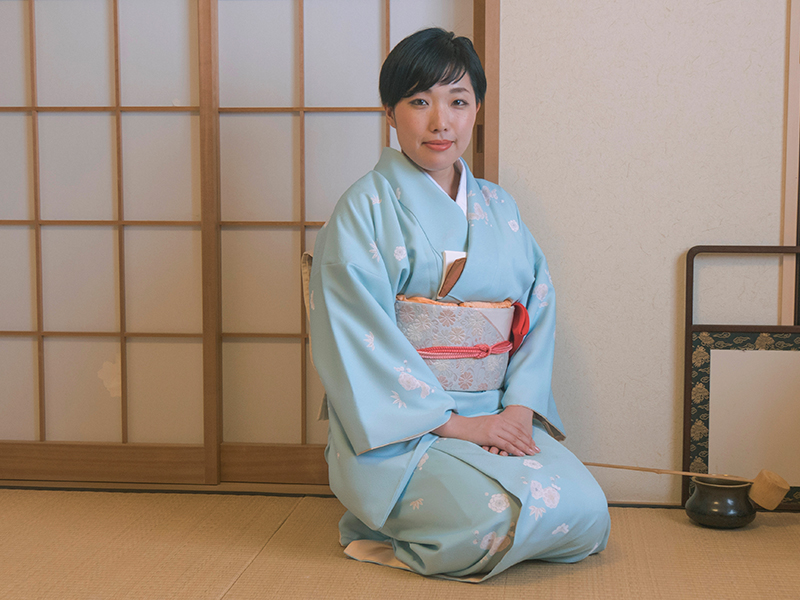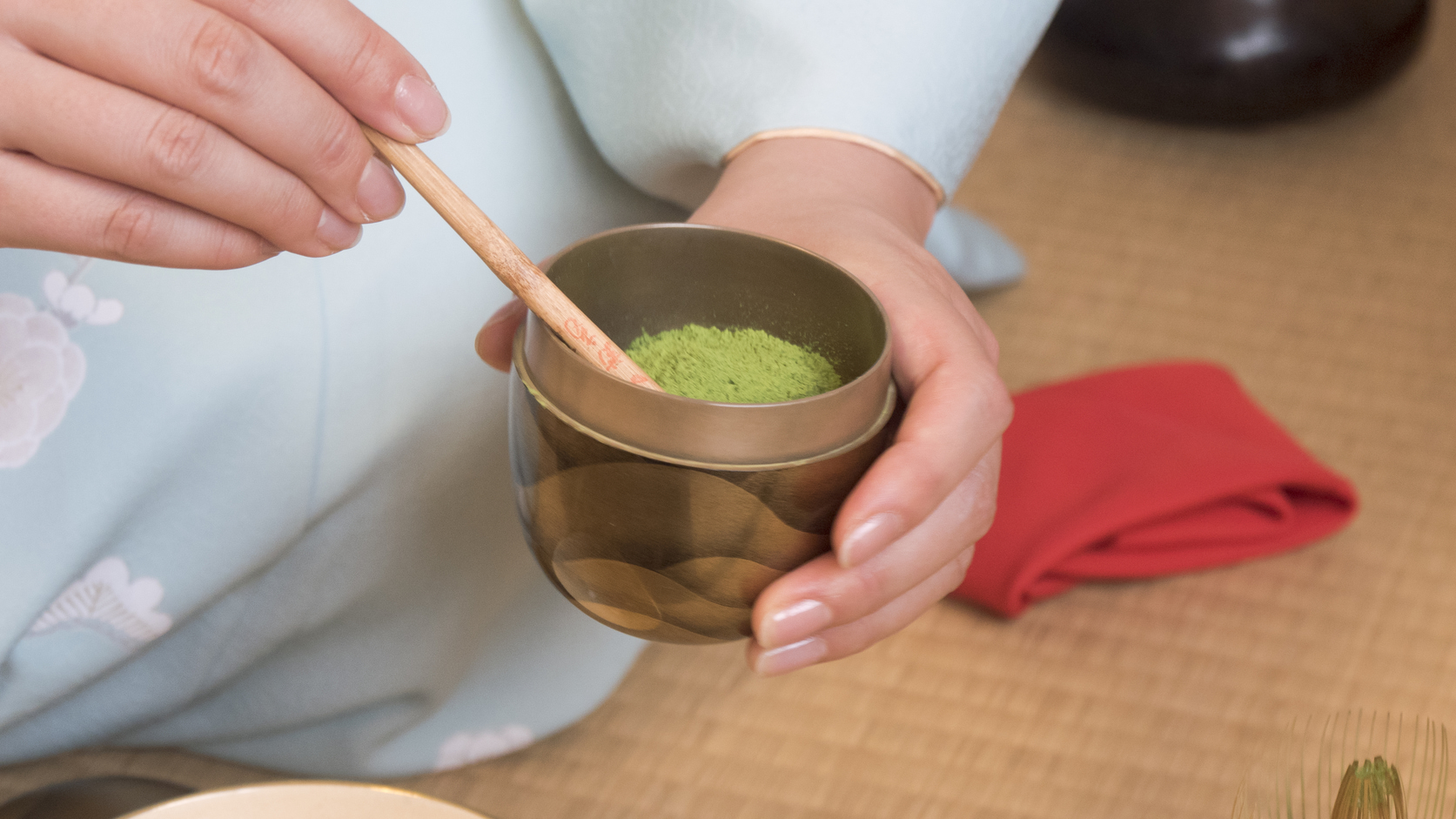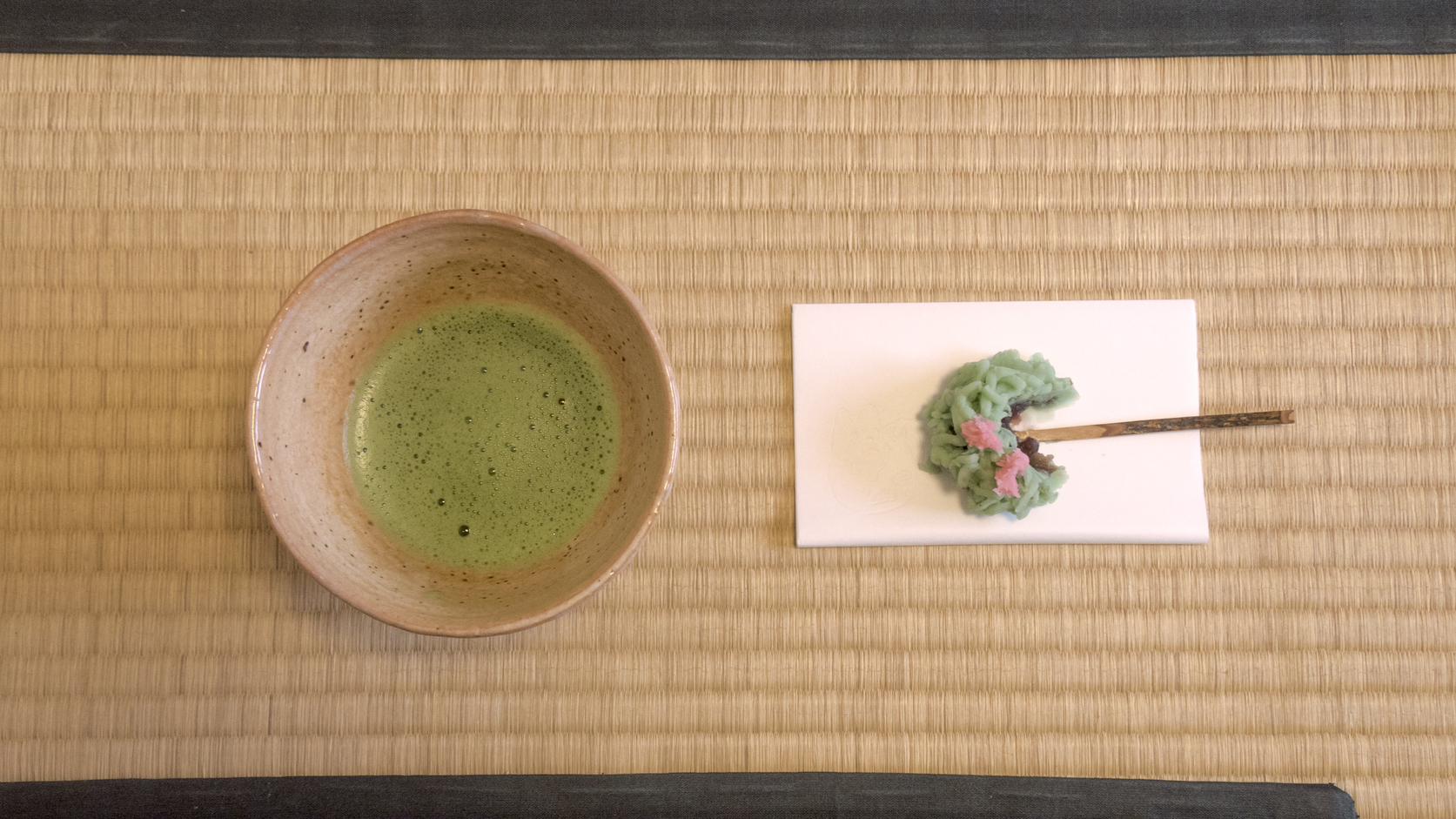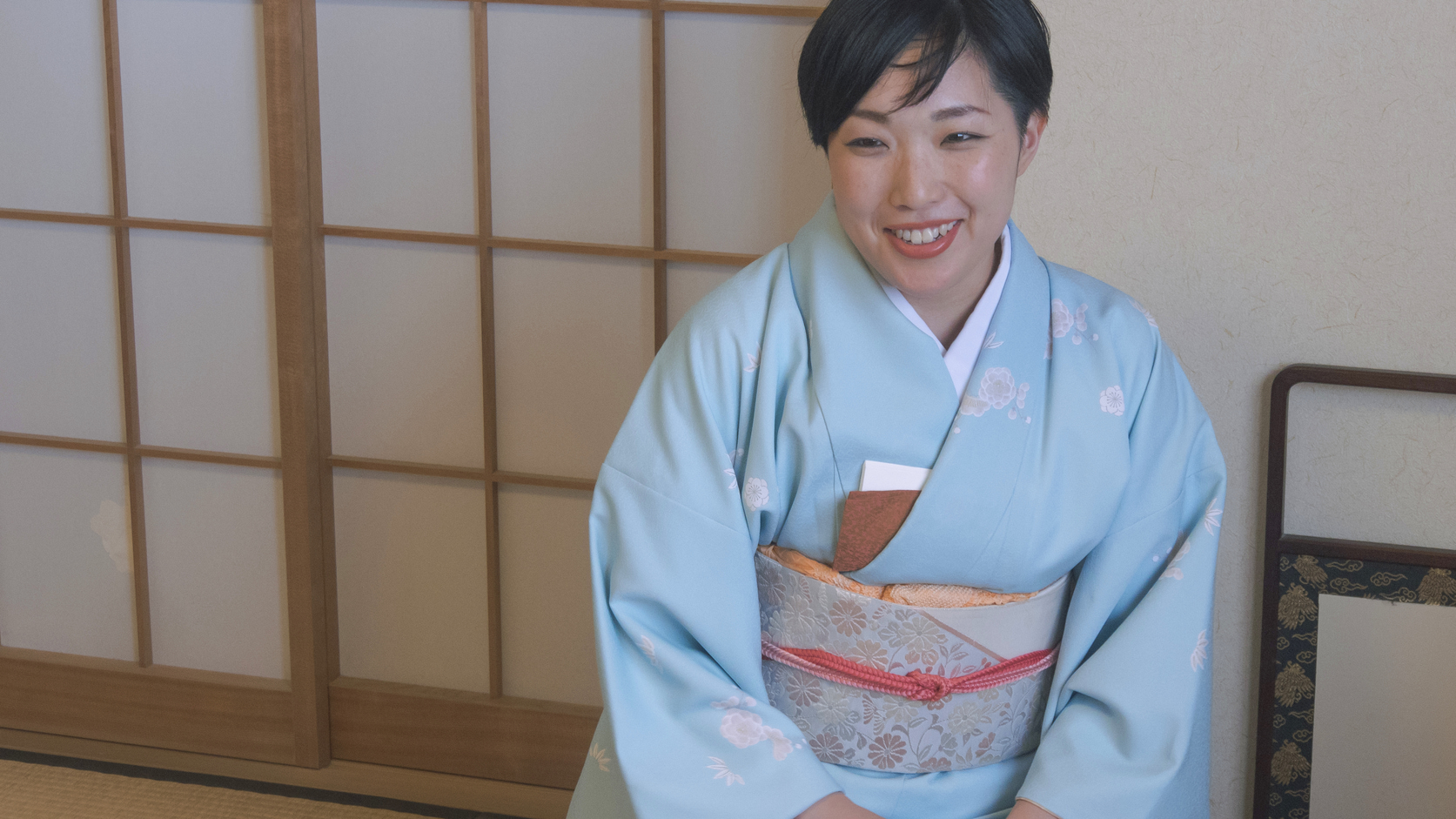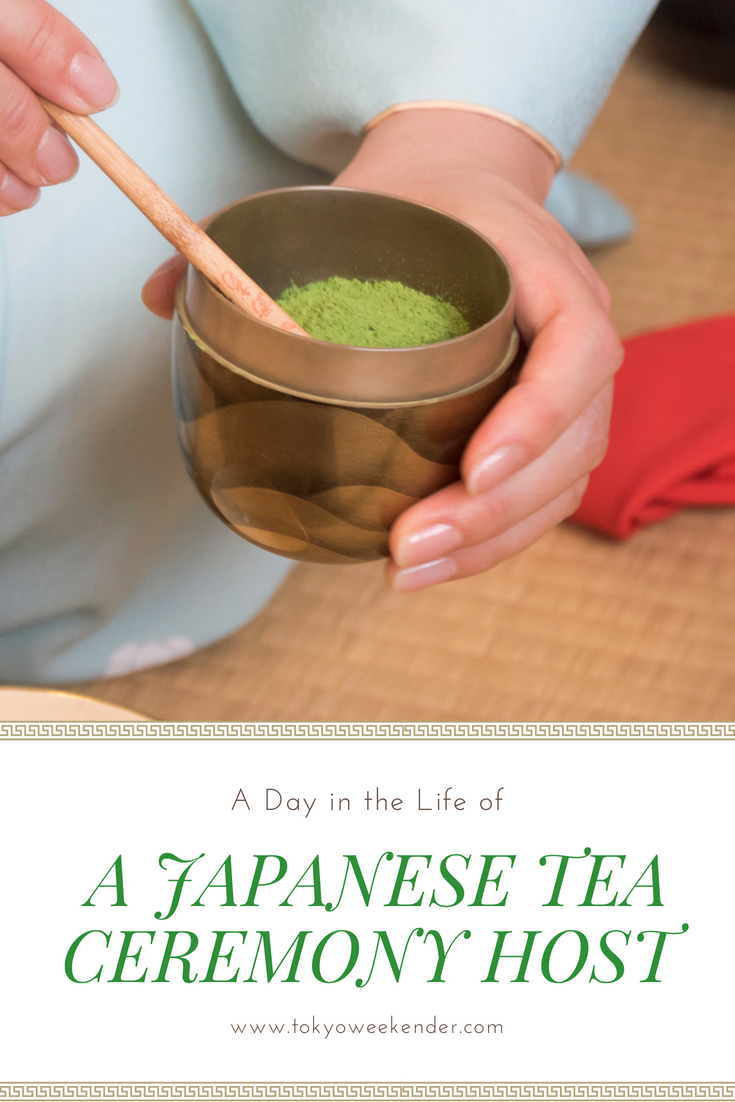Growing up with a mother and grandmother who are both Japanese tea ceremony masters, Maiko Tsunemine’s life has always been intertwined with this cultural tradition. But it was only after she had been living overseas for years that she decided to truly embrace the art. Returning to Tokyo from America, she began hosting tea ceremony experiences at her home – under the watchful eye of her mom – catering mostly to foreigners visiting Tokyo. We went along to find out more about what it’s like to be a modern-day tea ceremony host.
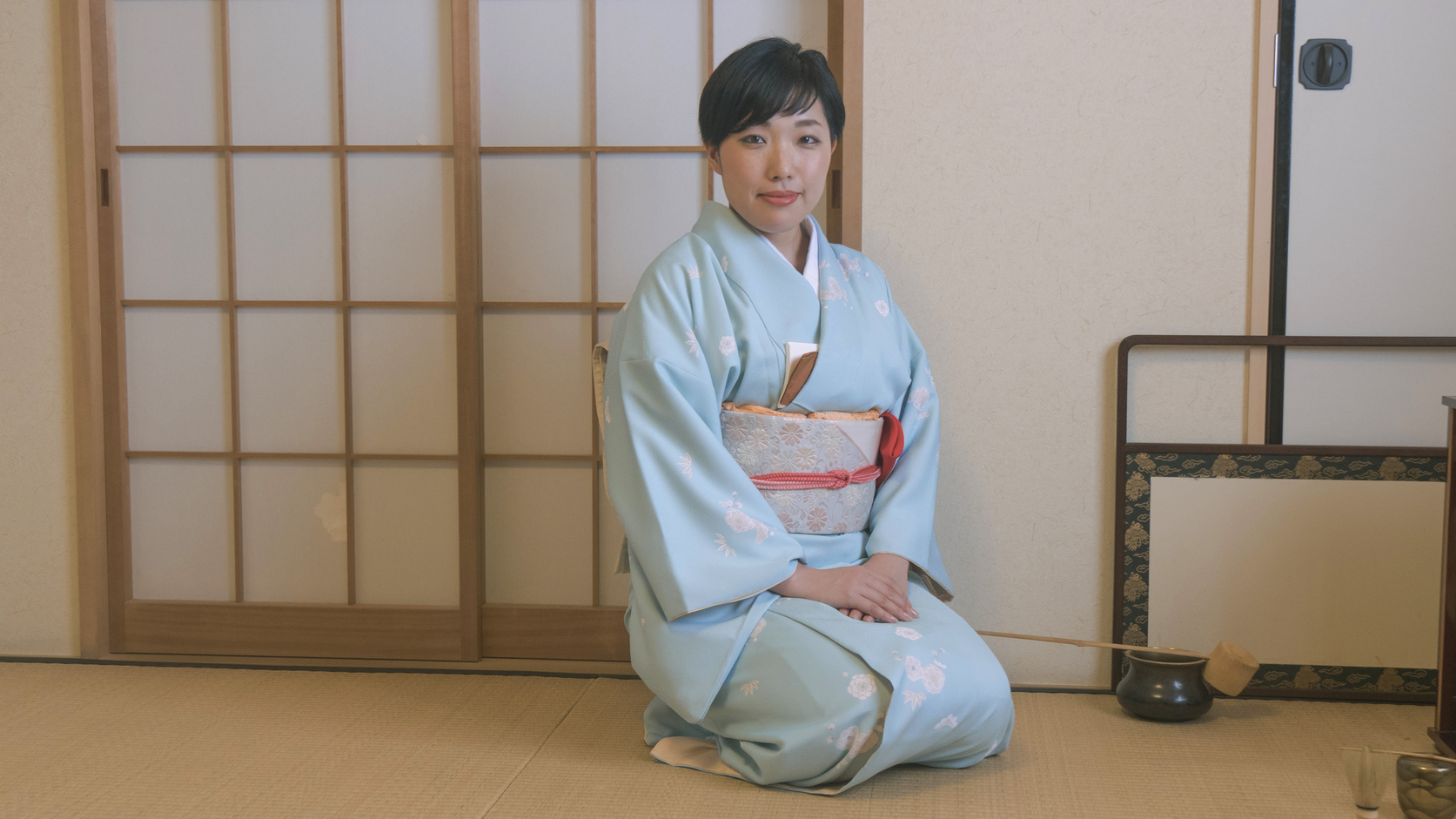
Tea Ceremony Host Maiko Tsunemine
What is a typical day like?
The first thing we have to do is find a flower for the tokonoma [an alcove in the room showcasing flowers and a hanging scroll]. My mother wakes up at 5am to do this! We choose either seasonal flowers or camellia, found in the park or anywhere nearby our house. The alcove is one of the most important areas in the green tea ceremony room, and we choose the flowers and the message on the scroll based on the character of the guests we’ll be receiving that day. This welcomes the guests and gives them a sense of intimacy. We also prepare our own wagashi (traditional sweets) – my mother made the sweets we are serving you today, and she used green and pink to represent spring colors. Next, we have to clean the tatami mat with a wet towel. Then we choose the tools and crockery that we’ll be using, also to suit the guests, and prepare the tea. We put on a kimono, with the color and pattern usually selected to match the season – this takes about 20 to 40 minutes.
“It’s all about one chance in a lifetime”
When the guests arrive, I light the charcoal (we still use the ash that my grandmother made years ago) in the sunken hearth, making sure that the water is the perfect temperature, the steam is rising gently out of the iron pot, and the aesthetics and ambiance are beautiful. We engage in some small talk, and I give them a brief overview of the ceremony. Since I’m not a master yet, I can’t give a serious lesson, so I usually tailor the experience to what the guest is looking for. Japanese tea ceremony is a comprehensive art but it’s also about hospitality, so if the guest wants something more casual, then I adapt to that. The tea ceremony itself takes about two hours.
Why did you choose this job?
I lived in the US for seven years, and being away from my family for so long made me think about my identity and where I come from. Also, Japanese tea ceremony has a philosophy called ichigo ichie, which means “one chance in a lifetime of opportunity,” and I started thinking how amazing it is that we can create such special moments during a tea ceremony: moments that only happen once and can never be exactly repeated. Finally, because I’m a bit westernized, I felt I could bring something new to the tradition, and I could offer the experience to tourists who come to Tokyo but might be intimated by very traditional ceremonies, or who don’t know where to go for the experience other than Kyoto. It’s all connected.
What do you learn about or from people when giving the ceremony?
People try to be very polite and respectful, and follow the rules of the ceremony, which is amazing and makes me feel connected to them. But surprisingly, they can also be so intimated by Japanese traditions. I don’t want them to feel this way; I want them to feel comfortable and relaxed.
What’s the most important part of being a tea ceremony host or master?
We are chasing perfection – I want my guests to be so pleased by the tea and the whole experience. We also want to show hospitality, and continue to learn more about the traditions and rules. My mother always says that even though she is a tea ceremony master, she is always learning from her students, so it’s important to stay open and humble. Also, the room is so pristine and special, so don’t bring any bad energy into it.
What’s the best part of the job?
I love the feeling of bonding, and the peacefulness and mindfulness. Japanese tea ceremony is for me is like a totally different world to your normal life. Once you step inside this room, everything is going to be different. Maybe you’ve had a bad day at work, but here you can destress and remember who you are. It’s very calming.
What’s the hardest part?
You have to memorize all the rules of etiquette! And sitting in seiza [kneeling, with legs tucked under] for such a long time is pretty hard too. [Laughs] My mother can sit like that all day long, though.
A tea ceremony experience with Maiko Tsunemine costs ¥4,200 per person. For more information on how to book, see our Concierge listing.
Photographs by Sybilla Patrizia

